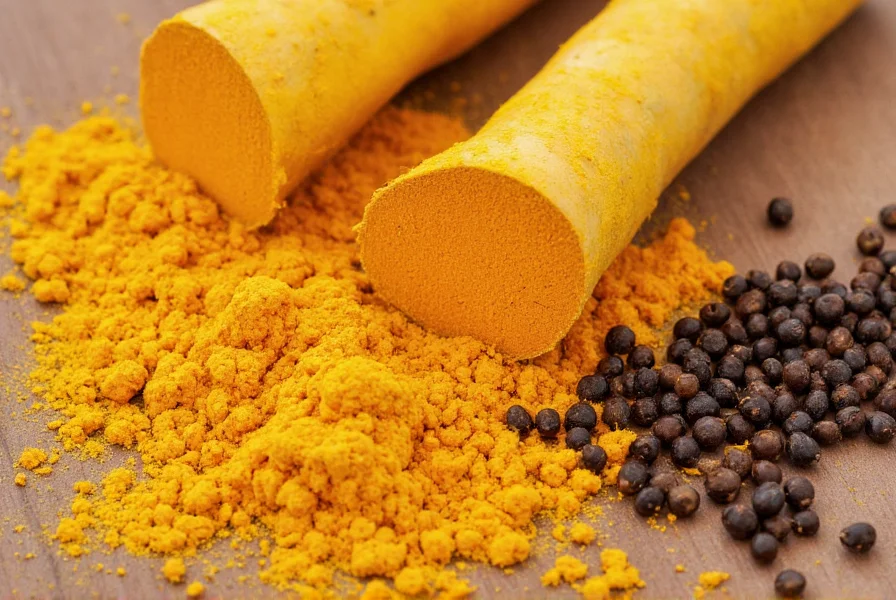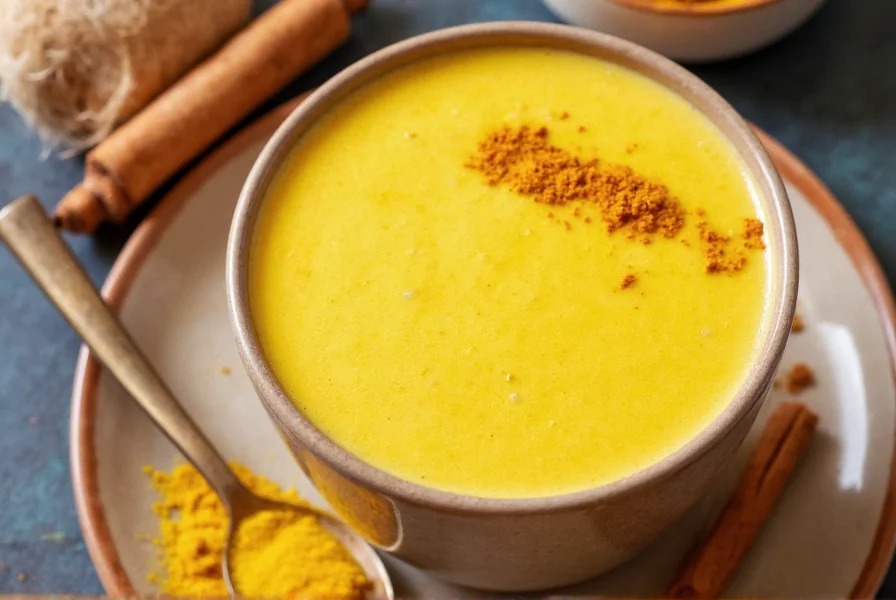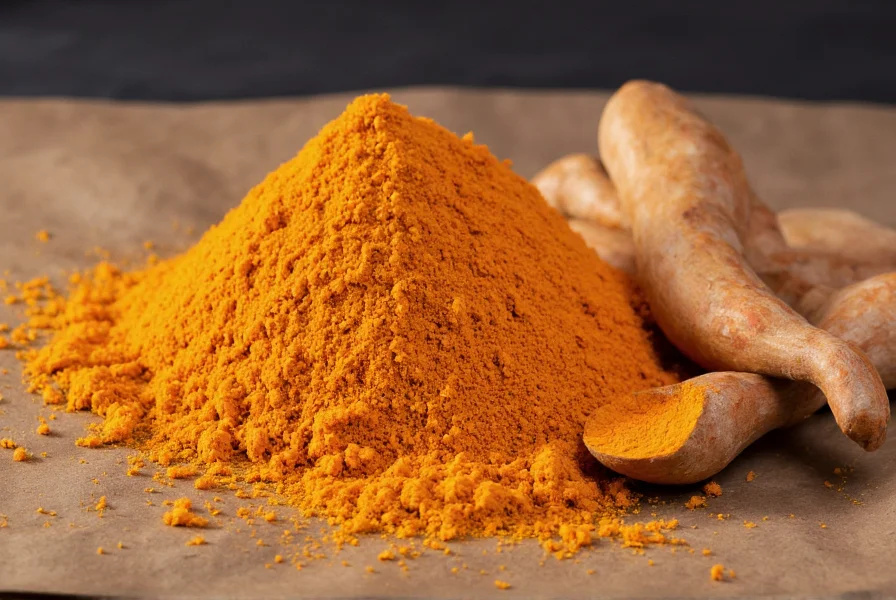Turmeric has journeyed from ancient Ayurvedic medicine to modern scientific scrutiny, becoming one of the most researched spices worldwide. This perennial plant of the ginger family (Curcuma longa) has been used for over 4,000 years in Southeast Asia, not only as a culinary staple but also as a traditional remedy for various ailments. Today, approximately 100 scientific papers about turmeric are published monthly, reflecting growing interest in its potential health applications.
Understanding Turmeric's Active Components
While turmeric contains over 100 bioactive compounds, curcuminoids represent its most valuable components. Curcumin constitutes about 2-8% of most turmeric preparations and demonstrates the strongest biological activity. However, curcumin's therapeutic potential faces significant challenges:
| Compound | Natural Percentage in Turmeric | Primary Benefits |
|---|---|---|
| Curcumin | 2-8% | Anti-inflammatory, antioxidant properties |
| Demethoxycurcumin | 15-20% of curcuminoids | Complementary anti-inflammatory effects |
| Bisdemethoxycurcumin | 3% of curcuminoids | Supports curcumin's biological activity |
Curcumin's poor bioavailability remains a significant limitation—when consumed alone, it's rapidly metabolized and eliminated. This explains why traditional preparations often combine turmeric with black pepper (containing piperine) or fats to enhance absorption.

Scientifically Supported Health Benefits
Rigorous clinical research has examined turmeric's effects on various health conditions. The strongest evidence supports its role in managing inflammation:
Inflammation Reduction
A 2022 meta-analysis published in Nutrients reviewed 22 clinical trials involving over 1,500 participants. Researchers found that standardized curcumin extracts (typically 500-1,500 mg daily) significantly reduced inflammatory markers like C-reactive protein (CRP) compared to placebo. The anti-inflammatory effects appear comparable to some non-steroidal anti-inflammatory drugs (NSAIDs), but without the same gastrointestinal risks.
Joint Health Support
For individuals with osteoarthritis, turmeric shows particular promise. A randomized controlled trial in the Journal of Medicinal Food followed 100 adults with knee osteoarthritis for 12 weeks. Those taking 1,000 mg of curcumin daily reported 40% greater improvement in pain scores and physical function compared to the control group. The researchers noted that combining curcumin with phospholipids increased absorption by up to 29-fold.
Antioxidant Capacity
Turmeric enhances the body's antioxidant defenses through multiple mechanisms. Studies show it not only neutralizes free radicals directly but also stimulates the body's own antioxidant enzymes like superoxide dismutase and glutathione. This dual action makes turmeric particularly effective at reducing oxidative stress, which contributes to aging and chronic disease development.
Important Considerations for Safe Use
While turmeric is generally safe as a food ingredient, higher therapeutic doses require careful consideration:
Potential Interactions
Turmeric may interact with several common medications:
- Blood thinners (warfarin, aspirin) – may increase bleeding risk
- Diabetes medications – may enhance blood sugar lowering effects
- Chemotherapy drugs – may interfere with treatment
Recommended Dosages
The European Food Safety Authority established an acceptable daily intake of 0.13 mg per pound (0.3 mg/kg) of body weight for curcumin. For a 150-pound person, this equals approximately 200 mg of curcumin daily. Therapeutic doses in studies typically range from 500-2,000 mg of standardized curcumin extract, but should only be used under healthcare supervision.

Maximizing Turmeric's Benefits
To overcome bioavailability challenges, consider these evidence-based strategies:
Combination with Piperine
Adding black pepper (containing 5-10% piperine) increases curcumin absorption by up to 2,000%. Just 20 mg of piperine alongside 2,000 mg of curcumin significantly boosts blood levels. This traditional combination has scientific validation—researchers at the University of Michigan found this pairing enhanced curcumin's anti-inflammatory effects in human trials.
Fat-Soluble Preparation
Since curcumin is fat-soluble, consuming it with healthy fats improves absorption. Traditional preparations like golden milk (turmeric in warm milk with fats) or adding turmeric to oil-based dressings leverage this principle. Modern supplements often use phospholipid or nanoparticle delivery systems to achieve similar effects.
Culinary Applications
For dietary incorporation, try these approaches:
- Add 1/2 teaspoon turmeric to scrambled eggs with black pepper
- Blend into smoothies with healthy fats like avocado or coconut milk
- Use in rice dishes or soups with olive oil
- Create a turmeric tea with lemon and honey
Evaluating the Research Landscape
While turmeric research shows promise, critical evaluation is essential. Many early studies used extremely high doses not achievable through normal consumption. Additionally, some research comes from supplement manufacturers, creating potential bias. Independent research from institutions like Harvard Medical School and the National Institutes of Health provides more reliable evidence.
The strongest evidence supports turmeric's anti-inflammatory effects at appropriate doses, while claims about cancer prevention or treatment remain preliminary. Most health authorities agree that while turmeric shows therapeutic potential, it should complement—not replace—conventional medical treatments.
Frequently Asked Questions
What's the difference between turmeric and curcumin?
Turmeric is the whole spice from the Curcuma longa plant, while curcumin is the primary active compound within turmeric (making up about 2-8% of the root). Most health benefits attributed to turmeric come from curcumin and related compounds called curcuminoids. Supplements often standardize curcumin content because it's the most researched component.
How much turmeric should I take daily for inflammation?
For general anti-inflammatory effects, studies suggest 500-1,500 mg of standardized curcumin extract daily. When using whole turmeric powder, 1-3 grams (about 1/2 to 1 1/2 teaspoons) provides approximately 10-45 mg of curcumin. Always combine with black pepper and healthy fats to enhance absorption. Consult your healthcare provider before starting any new supplement regimen.
Can turmeric interact with medications?
Yes, turmeric may interact with blood thinners (increasing bleeding risk), diabetes medications (enhancing blood sugar lowering effects), and certain chemotherapy drugs. It may also affect iron absorption. If you take any prescription medications, consult your healthcare provider before using turmeric supplements. Culinary amounts in food are generally safe for most people.
Why does turmeric need black pepper to work effectively?
Black pepper contains piperine, which inhibits enzymes in the liver and intestines that break down curcumin. Research shows this combination can increase curcumin absorption by up to 2,000%. Without piperine or another absorption enhancer, most curcumin passes through the digestive system without being utilized by the body.
Is turmeric safe for long-term use?
As a culinary spice, turmeric is generally recognized as safe for long-term use. For therapeutic doses (typically 500mg+ of curcumin), research suggests safety for up to 8 months. Some people experience mild digestive upset at higher doses. Long-term safety of very high doses remains less studied, so periodic breaks from supplementation are advisable. Consult your healthcare provider for personalized guidance.











 浙公网安备
33010002000092号
浙公网安备
33010002000092号 浙B2-20120091-4
浙B2-20120091-4